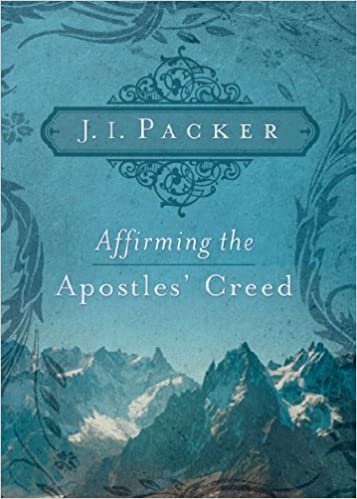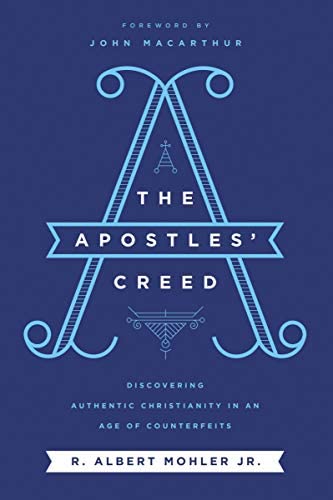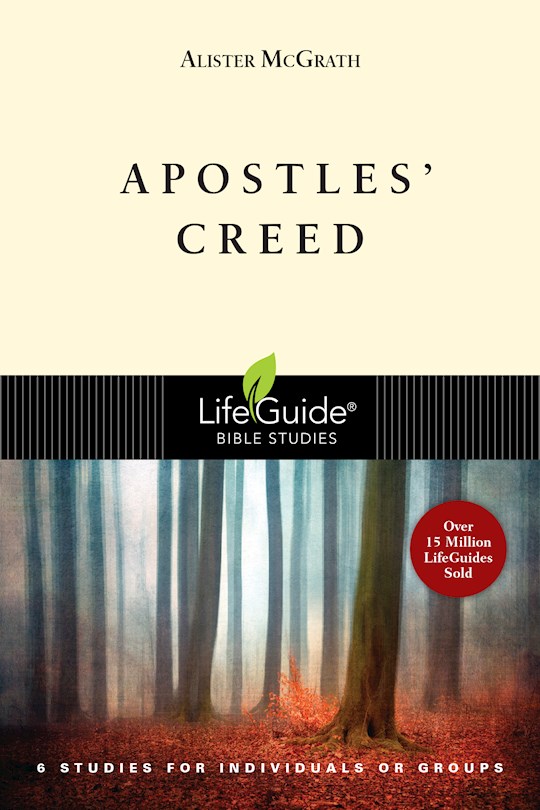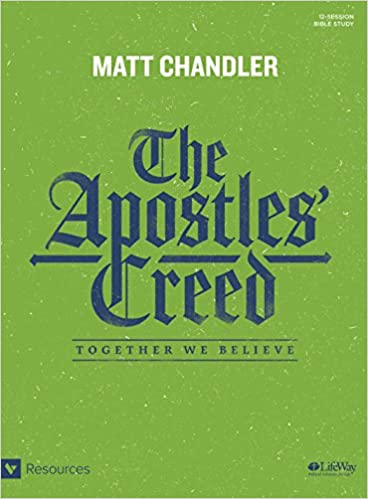Click here to return to Blog Post Intro
The Apostles’ Creed: A Guide to the Ancient Catechism by Ben Myers

The Holy Catholic Church
In the waters of baptism, all the old social divisions are made irrelevant.The church includes every kind of person: rich and poor, male and female, Jew and gentile, slave and free (Galatians 3:26-28).
As thirteenth-century Italian theologian Thomas Aquinas explained, “No one is rejected, neither lord nor servant, male nor female.” The boundaries of the church are as wide as the human race.
The message of the gospel is “catholic” (universal) in how it responds to the human plight and human needs. The message of Jesus doesn’t just speak to a special part of life—the moral or spiritual part, for example. It speaks to the whole person, body and soul, individual and social.
The church is what God has been doing in the world from the beginning. It is a representative microcosm of what God intends for the whole human family.That is why every division between believers is a denial of the gospel.

The Communion of Saints
Jesus did not seem interested in founding a new religion. He was not the author of new ideas but a new way of life. Everything Jesus believed to be important was entrusted to his small circle of followers. He showed them his unique way of living, loving, feasting, forgiving, teaching, and dying—and he invited them to live the same way.
Becoming a Christian is to be included in Jesus’ circle of followers. We get to share the same meal that Jesus shared with his followers. Four of Jesus’ followers left written records of what he said and what he was like, and we get to spend our lives continually pondering those four accounts. We read not to study about Jesus but because we are studying Him. We are seeking to live like Jesus.
Affirming the Apostles’ Creed by J. I. Packer

It is by strict theological logic that the Creed confesses faith in the Holy Spirit before proceeding to the church and that it speaks of the church before mentioning personal salvation (forgiveness, resurrection, everlasting life). The Holy Spirit creates the church, by inducing faith; and it is in the church, through ministry and fellowship, that personal salvation ordinarily comes to be enjoyed.
The Official Roman Catholic church presents the church of Christ as the one organized body of baptized persons who are in communion with the Pope and acknowledge the teaching and ruling authority of the episcopal hierarchy. Protestants argue that in Scripture, the church is the one worldwide fellowship of believing people whose Head is Christ. It is catholic because it embraces all Christians everywhere. In fact, the church was a fellowship before it became an institution.
The church is the supernatural society of God’s redeemed and baptized people, looking back to Christ’s first coming with gratitude and on to his second coming with hope.
The acid test of the church’s state is what happens in the local congregation. Each congregation is a visible outcrop of the one church universal. Spirit-filled for worship and witness, active in love and care for insiders and outsiders alike, self-supporting and self-propagating, each congregation is to be a spearhead of divine counterattack for the recapture of a rebel world.
The Apostles’ Creed: Discovering Authentic Christianity in an Age of Counterfeits by R. Albert Mohler, Jr.

The Apostles’ Creed now pivots from affirmations about God to the identity and character of God’s people. As the Creed affirms belief in the church—holy and catholic (universal)—it dispels any notion of individualistic Christianity. The creed, therefore, places emphasis not on me but we. Not on I but us.
In the words of a church historian, “My task is to inform you that there was someone between Jesus and your grandmother and then to convince you that it matters.” Contemporary Christianity often fails to grasp the depths of the creed’s affirmation and the importance of the long, unbroken line of communion Christians share as members of Christ’s church.
The horizon of American Christianity continues to recede as it embraces the rugged ethos of American individualism. American ecclesiology often capitulates to a spiritual “cafeteria” designed to meet preferential wants. The American church has been relegated to a consumer good rather than the body of the risen King of the universe.
In Matthew 16:15-16, Jesus asks Peter, “But what about you?” He asked. “Who do you say I am?” Simon Peter answered, “You are the Messiah, the Son of the living God.”

Matthew 16 describes the establishment of the church, but we must not stop there. The church is identified with the following characteristics:
- One: This idea seems laughable in an age of thousands of denominations, but we must hold on to the oneness of the church—the one people of God. This unity must be seen as spiritual unity, not institutional unity. Wherever the confession “Jesus is Lord” is found and the gospel is affirmed, there is a oneness there that testifies to the invisible unity of God’s people. There will be no Baptist or Methodist or Presbyterian or Lutheran or Anglican congregation in heaven—only one people of God unified forever in truth.
- Holy: On the night of his betrayal, Jesus prayed the high priestly prayer in John 17, asking the Father to sanctify his people. His desire for us is to be a holy people, devoted to God and His Word. This holiness comes from the Lord himself. We cannot hope to be holy by our own merit.
- Universal: The word catholic here simply means universal. Thus, wherever the church is found, it is the same church. Therefore, we believe in Christianity, not in “Christianities”; we believe in the gospel, not in “gospels.”
- Apostolic: The church inherited the instructions and teach of Christ from the apostles who followed and learned from Jesus. To be identified as a church, you teach all the apostles taught. The designation apostolic must exemplify the character and constitution of the church.
The “communion of saints” derides any notion of individualism or “go-it-alone” Christianity. May we have the mind of Christ, who descended from His throne to ransom for Himself a people, a church, a communion of saints for all eternity.
Apostles’ Creed by Alister McGrath

To believe in Jesus Christ is to believe in and belong to a dynamic community that spans the centuries. The Greek word ekklesia, used in the New Testament to refer to the church, denotes not a building but a group of people. It literally means “those who are called out.” The church includes those who have gone ahead of us and those who will follow. It is a great fellowship of faith, spanning the ages and continents.
The disunity of churches does not deny the fact that the church is one. There are many different churches or denominations, yet to the extent that these are genuinely Christian, they are all part of the one church.
To declare we believe in the “communion of saints” does not mean that we believe in a holy club; it means that we believe in a holy God who has called us as individuals into community. Communion is the old English word for fellowship, and it identifies a key role of the church. At one level, fellowship means “sharing joys and sorrows.” At another level, it refers to the level of material goods and wealth—meeting one another’s practical needs.
The word “saint” just means “someone who is holy.” Christians are not holy because of anything they’ve done but because of the One who has called them. God’s holiness can be reflected in our lives, even if we ourselves are sinners.
The Apostles’ Creed: Together We Believe by Matt Chandler

What practical steps are you taking to make room for meaningful relationships, including your church and small group?

When have you been blessed by the counsel of other Christians? In what ways has God convicted, encouraged, or taught you through conversations and relationships with other people?
While it may seem popular or culturally acceptable today to believe you can be a Christian without being committed to a local church, that idea is absolutely foreign to biblical Christianity, both today and throughout church history. Equally unfounded is the attempt to say you can belong to the universal church (the meaning of catholic in the creed) but not to a local church.
Humans are relational creatures. We’re made for community. After all, we’re created in the image of a triune God: Father, Son, and Spirit (Genesis 1:26-27).
Scripture uses the metaphor of a marriage relationship to describe the sacred communal relationship known as the church. Just as a husband and wife are one flesh—echoing God’s blessing on Adam and Eve (Genesis 2:24)—the church is united with Christ and is made one by the Holy Spirit (1 Corinthians 6:17).
When the Apostles’ Creed says “saints,” it’s another reference to all believers. All 60 times the New Testament uses the term, it indicates all Christians. The Greek word hagios literally means “holy ones.” In Christ, we’ve been made holy. The saints gather and commune as the church.
Finally, when the Apostles’ Creed says “communion,” it’s referring to the communal gathering of the saints—Christians—as the church.
Essentially, the phrase “the holy catholic church, the communion of saints” is purposely redundant, emphasizing the totality and inclusivity of all believers in the body of Christ.
Prayer
Help me see the church as holy because that’s what You’ve made it. Your church desires to be one as you are one. Shape Your church into the likeness of Christ. Your church, the communion of saints in which You’ve placed us, is holy and set apart, not because of its merit but because You’ve called Your people into fellowship. I pray in the name of my Lord Jesus Christ. Amen.
